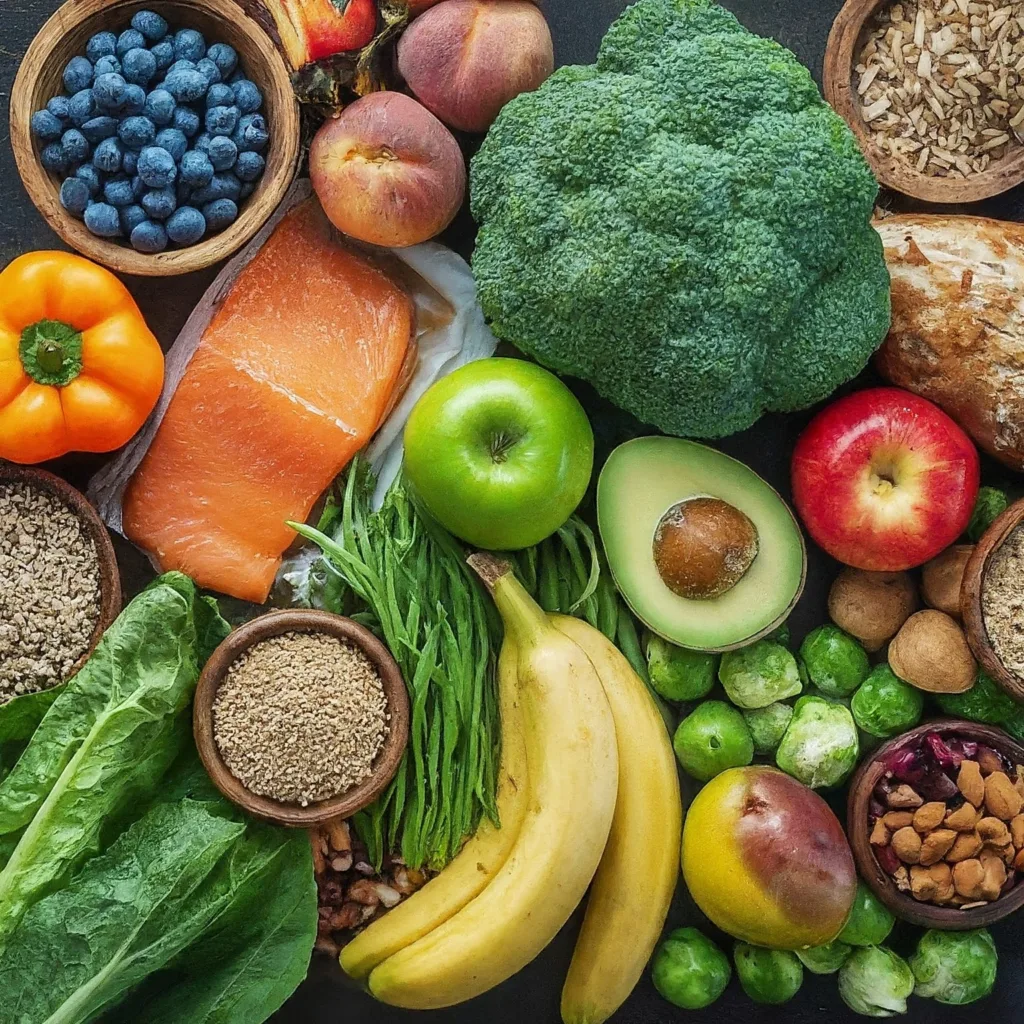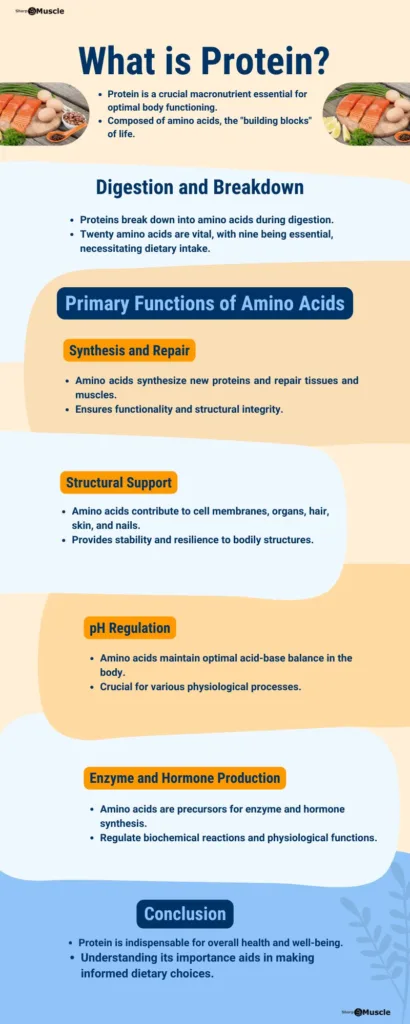Leptin is a hormone that is produced by fat cells in the body.1
While the number of calories consumed and burned through physical activity certainly play a role in weight gain and loss, the regulation of body weight is much more complex and involves multiple factors. In addition to the calories consumed and expended, genetics, hormones, and lifestyle factors such as sleep and stress also play a significant role in regulating body weight.
Leptin, for example, is one of the hormones involved in regulating hunger and satiety, and when it becomes dysregulated, it can make weight loss difficult, even with caloric restriction and increased physical activity.
The concept of willpower is often used as a way to blame individuals for their weight, but this is not accurate or fair. Many people with obesity struggle with food cravings and intense hunger despite their best efforts to control their eating, and this is often due to underlying hormonal imbalances and other metabolic factors.
What is Leptin?

Leptin is a hormone produced by fat cells that plays a key role in regulating energy balance and body weight. When the amount of body fat increases, the amount of leptin produced by the fat cells also increases. Leptin travels through the bloodstream to the hypothalamus, a region of the brain that controls hunger and satiety. When the level of leptin is high, it signals to the brain that the body has enough stored energy, and this reduces hunger and promotes a feeling of fullness.
Modern obesity research has shed new light on the role of hormones in regulating body weight, and leptin is one of the hormones that has received significant attention in recent years. 2 Unlike the traditional view that weight gain and loss is simply a matter of calories in vs. calories out, research has shown that the regulation of body weight is a complex interplay of multiple factors, including genetics, hormones, lifestyle, and more.
How does leptin work?
Leptin is often referred to as the “satiety hormone” because it reduces hunger and promotes feelings of fullness, helping regulate food intake and energy balance. It is also sometimes referred to as the “starvation hormone” because low levels of leptin trigger hunger and increase the drive to eat, promoting the search for food when energy stores are low.
Leptin’s primary target is indeed the hypothalamus, a region of the brain that regulates a wide range of functions, including hunger, thirst, and energy balance. The hypothalamus receives signals from leptin and other hormones and neurotransmitters, and integrates this information to control food intake and energy expenditure.
It acts on specific receptors in the hypothalamus, which leads to changes in the activity of certain neurons and the release of other hormones and neurotransmitters that regulate hunger and energy balance. This allows leptin to play a crucial role in regulating energy homeostasis, helping to prevent excessive weight gain and promoting weight loss.
Impact on the brain
Leptin works as a key signaling molecule between the fat stores and the brain, helping to regulate food intake and energy balance. 3
When fat stores are high and leptin levels are elevated, the hypothalamus receives the signal that energy stores are sufficient, reducing hunger and increasing feelings of fullness. 4 This promotes weight loss by reducing food intake and increasing energy expenditure.
On the other hand, when fat stores are low and leptin levels are decreased, the hypothalamus receives the signal that energy stores are insufficient, increasing hunger and reducing feelings of fullness. 5 This promotes weight gain by increasing food intake and decreasing energy expenditure.
This negative feedback loop helps to regulate energy homeostasis, ensuring that the body has enough energy to meet its needs. However, when the brain becomes resistant to the effects of leptin, it can lead to problems with regulating hunger and body weight, contributing to the development of obesity and other weight-related disorders, such as obesity and type 2 diabetes.
What Is Leptin Resistance?
Leptin resistance is a condition that is believed to be a major contributor to obesity.
People with obesity have high levels of body fat in their fat cells, and as a result, they also have high levels of leptin, 6 the hormone responsible for telling the brain when there is enough stored energy and it’s time to stop eating.
However, in cases of leptin resistance, the brain doesn’t receive the signal from the high levels of leptin, causing the brain to believe that the body is starving, even though there is plenty of stored energy. 7 This miscommunication leads the brain to encourage eating more and decreasing energy expenditure, which can lead to weight gain.
For people struggling with leptin resistance, it’s not as simple as just using willpower to overcome the hunger signals. Overcoming the hormonal defect of leptin resistance is challenging8 and requires a combination of lifestyle changes, such as diet and exercise, and in some cases, medications that improve leptin signaling.
Impact on diet
Dieting can be a challenging task for many people, especially if they suffer from leptin resistance. 9 10
This condition is believed to be one of the major contributors to obesity, as the brain does not receive the correct signal from the hormone leptin, leading it to think that the body is starving even when it has plenty of energy stored.
When people with leptin resistance try to lose weight through dieting, their fat mass decreases, which results in a significant drop in leptin levels. However, their brain does not necessarily reverse its resistance to leptin.
This reduction in leptin levels causes hunger, increased appetite, reduced motivation to exercise, and a decreased number of calories burned at rest. 11 12 The brain then thinks that the body is starving and triggers various mechanisms to regain the lost body fat.
This is why many people who diet experience the yo-yo effect, where they lose a significant amount of weight only to gain it back shortly after. Leptin resistance makes it difficult for dieters to stick to their weight loss goals, as they are constantly battling hunger and a reduced metabolism.
What Causes Leptin Resistance?
Leptin resistance is thought to be caused by a combination of factors, including:13 14
- Excessive leptin levels: High levels of leptin in the bloodstream can cause the brain to become resistant to the hormone’s signals.
- Chronic inflammation: Inflammation in the hypothalamus can impair the brain’s ability to respond to leptin.
- A high-fat diet: A diet high in fat can lead to oxidative stress and inflammation, both of which contribute to the development of leptin resistance.
- Insulin resistance: Insulin resistance can reduce the effectiveness of leptin signaling in the brain.
- Lack of sleep: Chronic sleep deprivation has been shown to impair leptin signaling and increase the risk of leptin resistance.
- Genetics: Some studies have found that genetic factors may play a role in the development of leptin resistance.
Can Leptin Resistance Be Reversed?
Yes, leptin resistance can be reversed in some cases. Here are a few things you can do to improve your body’s sensitivity to leptin:
- Exercise: Exercise can help reverse leptin resistance by increasing energy expenditure and reducing fat mass. Regular exercise has been shown to improve leptin sensitivity, even in people with obesity. 15
- Reduce Inflammation: Inflammation can interfere with the signaling between leptin and the hypothalamus, leading to resistance. Eating an anti-inflammatory diet, high in whole foods like fruits, vegetables, and lean proteins, and low in processed foods and sugar, can help reduce inflammation and improve leptin sensitivity.
- Get Enough Sleep: Lack of sleep can increase inflammation and decrease leptin sensitivity. Aim for 7-9 hours of sleep per night to help maintain leptin sensitivity. 16
- Limit Processed Foods and Sugar: Processed foods and added sugars can increase inflammation, impair leptin sensitivity, and contribute to obesity. Try to limit these foods and choose whole, nutrient-dense foods instead. 17
- Improve Gut Health: Gut bacteria play a role in regulating leptin sensitivity and can be impacted by factors like poor diet, antibiotics, and stress. Improving gut health, for example by eating fermented foods or taking probiotics, may help improve leptin sensitivity. 18
- Eat soluble fiber: Soluble fiber is known to help regulate insulin levels and promote feelings of fullness, which can help reduce overall food intake. Eating more soluble fiber, like that found in fruits, vegetables, and legumes, can help improve leptin sensitivity. 19
- Lower your triglycerides: High levels of triglycerides have been linked to the development of leptin resistance. Eating a healthy diet, reducing your intake of refined carbohydrates and added sugars, and engaging in regular physical activity can all help lower your triglycerides and improve leptin sensitivity. 20 21
- Eat protein: Protein has been shown to help regulate leptin levels and improve leptin sensitivity. Aim to include protein in every meal and snack, focusing on sources like lean meats, poultry, fish, eggs, dairy products, and plant-based proteins like legumes, nuts, and seeds. 22
These strategies may help improve leptin sensitivity, they should be considered in the context of a healthy and balanced diet, and should not be relied upon as a single solution. Additionally, everyone’s body is different and what may work for one person may not work for another. It is always best to work with a healthcare professional to determine the best approach for your individual needs.
Bottom line
Leptin resistance is a complex issue that may contribute to weight gain and difficulties with weight loss.
Many experts believe that leptin resistance plays a significant role in the difficulty people face in maintaining a healthy weight.
It’s not simply a matter of personal willpower, but rather a complex interplay of biology and lifestyle factors. The Western diet, for example, is thought to contribute to the development of leptin resistance.
However, there are steps you can take to support a healthy lifestyle and potentially improve your leptin resistance, such as making dietary changes and engaging in regular physical activity.
- Margetic S, Gazzola C, Pegg GG, Hill RA. “Leptin: a review of its peripheral actions and interactions.” Int J Obes Relat Metab Disord. 2002 Nov;26(11):1407-33. doi: 10.1038/sj.ijo.0802142. PMID: 12439643.[↩]
- Allison MB, Myers MG Jr. “20 years of leptin: connecting leptin signaling to biological function.” J Endocrinol. 2014 Oct;223(1):T25-35. doi: 10.1530/JOE-14-0404. PMID: 25232147; PMCID: PMC4170570.[↩]
- Maffei M, Halaas J, Ravussin E, Pratley RE, Lee GH, Zhang Y, Fei H, Kim S, Lallone R, Ranganathan S, et al. “Leptin levels in human and rodent: measurement of plasma leptin and ob RNA in obese and weight-reduced subjects.” Nat Med. 1995 Nov;1(11):1155-61. doi: 10.1038/nm1195-1155. PMID: 7584987.[↩]
- Schwartz MW, Woods SC, Porte D Jr, Seeley RJ, Baskin DG. “Central nervous system control of food intake.” Nature. 2000 Apr 6;404(6778):661-71. doi: 10.1038/35007534. PMID: 10766253.[↩]
- Chan JL, Heist K, DePaoli AM, Veldhuis JD, Mantzoros CS. “The role of falling leptin levels in the neuroendocrine and metabolic adaptation to short-term starvation in healthy men.” J Clin Invest. 2003 May;111(9):1409-21. doi: 10.1172/JCI17490. PMID: 12727933; PMCID: PMC154448.[↩]
- Considine RV, Sinha MK, Heiman ML, Kriauciunas A, Stephens TW, Nyce MR, Ohannesian JP, Marco CC, McKee LJ, Bauer TL, et al. “Serum immunoreactive-leptin concentrations in normal-weight and obese humans.” N Engl J Med. 1996 Feb 1;334(5):292-5. doi: 10.1056/NEJM199602013340503. PMID: 8532024.[↩]
- Myers MG Jr, Heymsfield SB, Haft C, Kahn BB, Laughlin M, Leibel RL, Tschöp MH, Yanovski JA. “Challenges and opportunities of defining clinical leptin resistance.” Cell Metab. 2012 Feb 8;15(2):150-6. doi: 10.1016/j.cmet.2012.01.002. PMID: 22326217; PMCID: PMC3281561.[↩]
- Lustig RH. “Childhood obesity: behavioral aberration or biochemical drive? Reinterpreting the First Law of Thermodynamics.” Nat Clin Pract Endocrinol Metab. 2006 Aug;2(8):447-58. doi: 10.1038/ncpendmet0220. PMID: 16932334.[↩]
- Wing RR, Sinha MK, Considine RV, Lang W, Caro JF. “Relationship between weight loss maintenance and changes in serum leptin levels.” Horm Metab Res. 1996 Dec;28(12):698-703. doi: 10.1055/s-2007-979881. PMID: 9013745.[↩]
- Hinkle W, Cordell M, Leibel R, Rosenbaum M, Hirsch J. “Effects of reduced weight maintenance and leptin repletion on functional connectivity of the hypothalamus in obese humans.” PLoS One. 2013;8(3):e59114. doi: 10.1371/journal.pone.0059114. Epub 2013 Mar 21. PMID: 23555620; PMCID: PMC3605420.[↩]
- Keim NL, Stern JS, Havel PJ. “Relation between circulating leptin concentrations and appetite during a prolonged, moderate energy deficit in women.” Am J Clin Nutr. 1998 Oct;68(4):794-801. doi: 10.1093/ajcn/68.4.794. PMID: 9771856.[↩]
- Ahima RS. “Revisiting leptin’s role in obesity and weight loss.” J Clin Invest. 2008 Jul;118(7):2380-3. doi: 10.1172/JCI36284. PMID: 18568083; PMCID: PMC2430504.[↩]
- Guyenet SJ, Schwartz MW. “Clinical review: Regulation of food intake, energy balance, and body fat mass: implications for the pathogenesis and treatment of obesity.” J Clin Endocrinol Metab. 2012 Mar;97(3):745-55. doi: 10.1210/jc.2011-2525. Epub 2012 Jan 11. PMID: 22238401; PMCID: PMC3319208.[↩]
- Thaler JP, Yi CX, Schur EA, Guyenet SJ, Hwang BH, Dietrich MO, Zhao X, Sarruf DA, Izgur V, Maravilla KR, Nguyen HT, Fischer JD, Matsen ME, Wisse BE, Morton GJ, Horvath TL, Baskin DG, Tschöp MH, Schwartz MW. “Obesity is associated with hypothalamic injury in rodents and humans.” J Clin Invest. 2012 Jan;122(1):153-62. doi: 10.1172/JCI59660. Epub 2011 Dec 27. Erratum in: J Clin Invest. 2012 Feb 1;122(2):778. PMID: 22201683; PMCID: PMC3248304.[↩]
- Reseland JE, Anderssen SA, Solvoll K, Hjermann I, Urdal P, Holme I, Drevon CA. “Effect of long-term changes in diet and exercise on plasma leptin concentrations.” Am J Clin Nutr. 2001 Feb;73(2):240-5. doi: 10.1093/ajcn/73.2.240. PMID: 11157319.[↩]
- Spiegel K, Leproult R, L’hermite-Balériaux M, Copinschi G, Penev PD, Van Cauter E. “Leptin levels are dependent on sleep duration: relationships with sympathovagal balance, carbohydrate regulation, cortisol, and thyrotropin.” J Clin Endocrinol Metab. 2004 Nov;89(11):5762-71. doi: 10.1210/jc.2004-1003. PMID: 15531540.[↩]
- Ghanim H, Abuaysheh S, Sia CL, Korzeniewski K, Chaudhuri A, Fernandez-Real JM, Dandona P. “Increase in plasma endotoxin concentrations and the expression of Toll-like receptors and suppressor of cytokine signaling-3 in mononuclear cells after a high-fat, high-carbohydrate meal: implications for insulin resistance.” Diabetes Care. 2009 Dec;32(12):2281-7. doi: 10.2337/dc09-0979. Epub 2009 Sep 15. PMID: 19755625; PMCID: PMC2782991.[↩]
- Schéle E, Grahnemo L, Anesten F, Hallén A, Bäckhed F, Jansson JO. “The gut microbiota reduces leptin sensitivity and the expression of the obesity-suppressing neuropeptides proglucagon (Gcg) and brain-derived neurotrophic factor (Bdnf) in the central nervous system.” Endocrinology. 2013 Oct;154(10):3643-51. doi: 10.1210/en.2012-2151. Epub 2013 Jul 26. PMID: 23892476.[↩]
- Salas-Salvadó J, Farrés X, Luque X, Narejos S, Borrell M, Basora J, Anguera A, Torres F, Bulló M, Balanza R; Fiber in Obesity-Study Group. “Effect of two doses of a mixture of soluble fibres on body weight and metabolic variables in overweight or obese patients: a randomised trial.” Br J Nutr. 2008 Jun;99(6):1380-7. doi: 10.1017/S0007114507868528. Epub 2007 Nov 22. PMID: 18031592.[↩]
- Frederick F. Samaha, M.D., Nayyar Iqbal, M.D., Prakash Seshadri, M.D., Kathryn L. Chicano, C.R.N.P. “A Low-Carbohydrate as Compared with a Low-Fat Diet in Severe Obesity.” N Engl J Med 2003; 348:2074-2081. DOI: 10.1056/NEJMoa022637.[↩]
- Banks WA, Coon AB, Robinson SM, Moinuddin A, Shultz JM, Nakaoke R, Morley JE. “Triglycerides induce leptin resistance at the blood-brain barrier.” Diabetes. 2004 May;53(5):1253-60. doi: 10.2337/diabetes.53.5.1253. PMID: 15111494.[↩]
- Weigle DS, Breen PA, Matthys CC, Callahan HS, Meeuws KE, Burden VR, Purnell JQ. “A high-protein diet induces sustained reductions in appetite, ad libitum caloric intake, and body weight despite compensatory changes in diurnal plasma leptin and ghrelin concentrations.” Am J Clin Nutr. 2005 Jul;82(1):41-8. doi: 10.1093/ajcn.82.1.41. PMID: 16002798.[↩]














